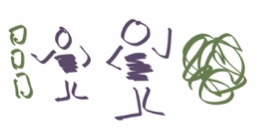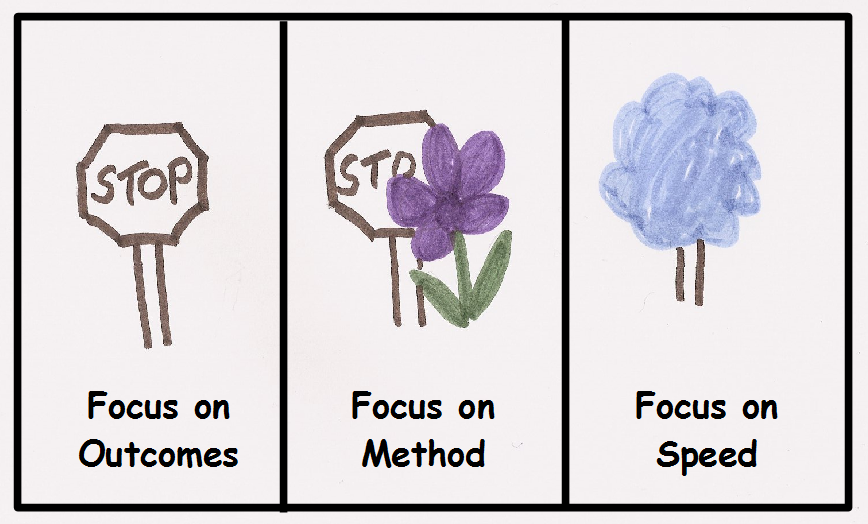The A-Ruminations team discuss Murphy’s and Conway’s Laws.
Category Archives: Uncategorized
011 Governance
The A-Ruminations team discuss Governance and all that it implies.
Complex in Hindsight
When we reflect on a complex event, it often looks predictable in hindsight and this makes it harder to deal with complexity in the future. This post is about complexity in the Cynefin sense – where it is not possible to see linkages between events beforehand – but it is possible to see those linkages afterwards.
The two Cynefin domains that have high certainty are called Complicated and Obvious. The complex events that happened in the past – look like they belong in these domains – when facilitating sessions with people and asking if the past events were predictable, they will often say that they were. It is a good idea to double-check that this is the case – ‘are you saying they were predictable with your benefit of hindsight? Or if we went back in time, is it really an unpredictable set of linkages?’
It is useful to take examples of past events and create a Cynefin Framework from them in order to create a shared understanding among a group of people. The Cognitive Edge Method to do this is called 4-points or 4-tables contextualisation. Once the Cynefin Framework has been created, the labels on the groupings of events become very useful in the future. The group can then say that an upcoming event is like one in the framework, and if it is in the Complex Domain, use an exploratory approach rather than a project management method more suited to the Complicated Domain.
The main ‘gotcha’ with using historical events is this one – that the complex ones do not appear complex in hindsight – so be careful when facilitating that this is not a factor – otherwise, the Cynefin Framework created will have more examples of high-certainty events than actually exist in the environment.
Stop Signs
Knowing when to stop is important, and sometimes it is easier than others to pick up the signs. It depends on our focus.
Focus on Outcomes
When we understand why we use the principles of agile and lean, and we remain focused on the outcomes it is easier to see when to stop.
- When our fast feedback loops inform us that we are building the wrong thing
- When our first release to the market does not delight our customers as expected
- When we thought it might take 2 iterations to build and discover we are not even halfway through after 1 iteration
Focus on Method
Sometimes we think that if we follow a process perfectly, then we will always get a good outcome – this obscures the stop signs. Methods are good – but should not be our focus.
- Methods give us a shared context and language so that it is easier for us to work together
- Methods help to provide regularity, this can give us measures that we can use to observe impacts – but do not use them as targets because they will be gamed
Focus on Speed
This focus will help us to miss most of the stop signs because we are only observing how fast we are going.


